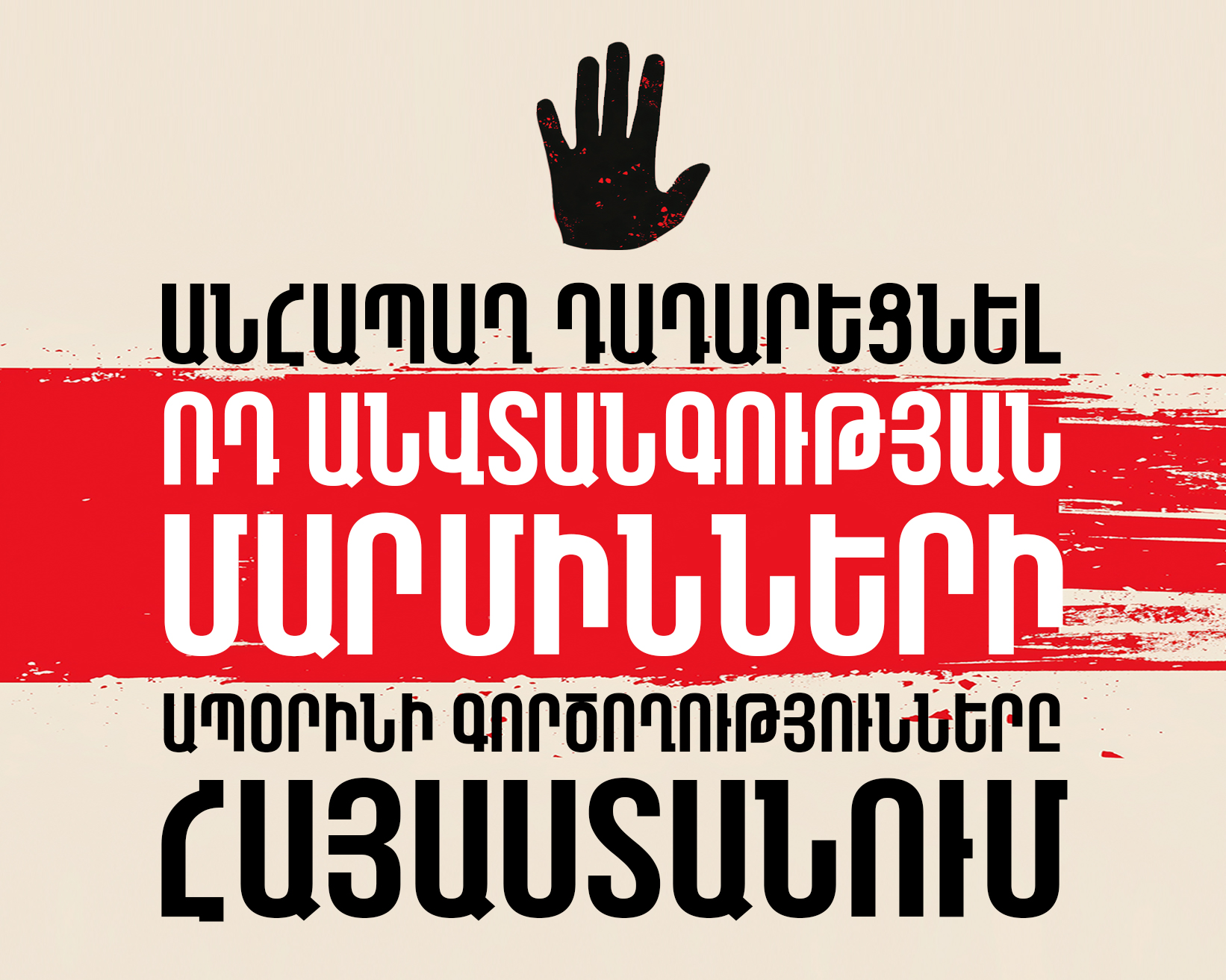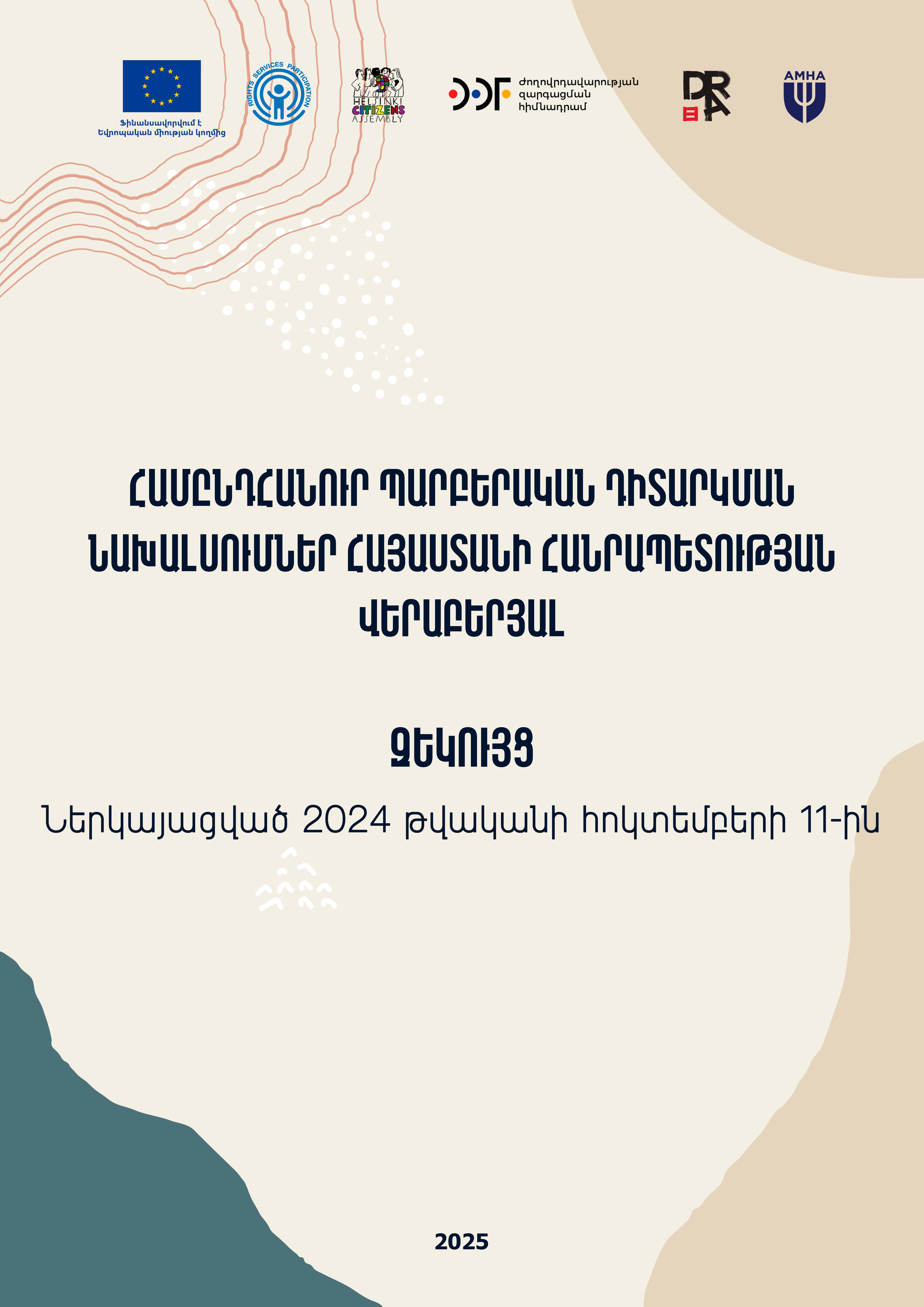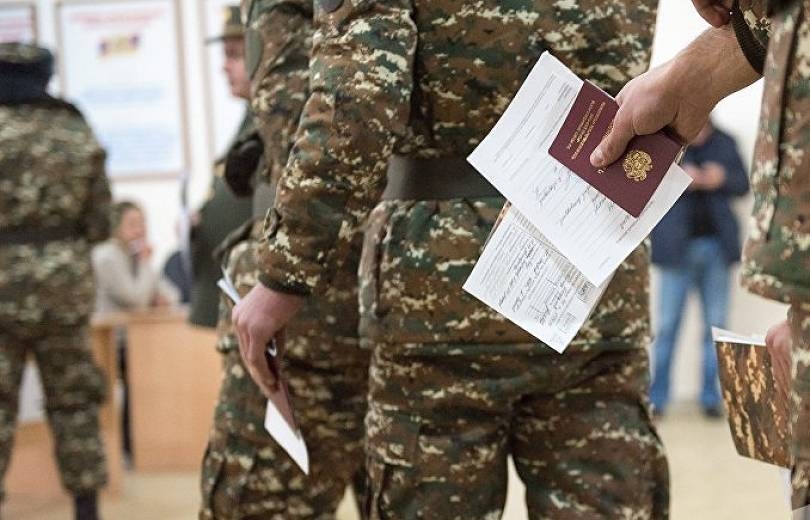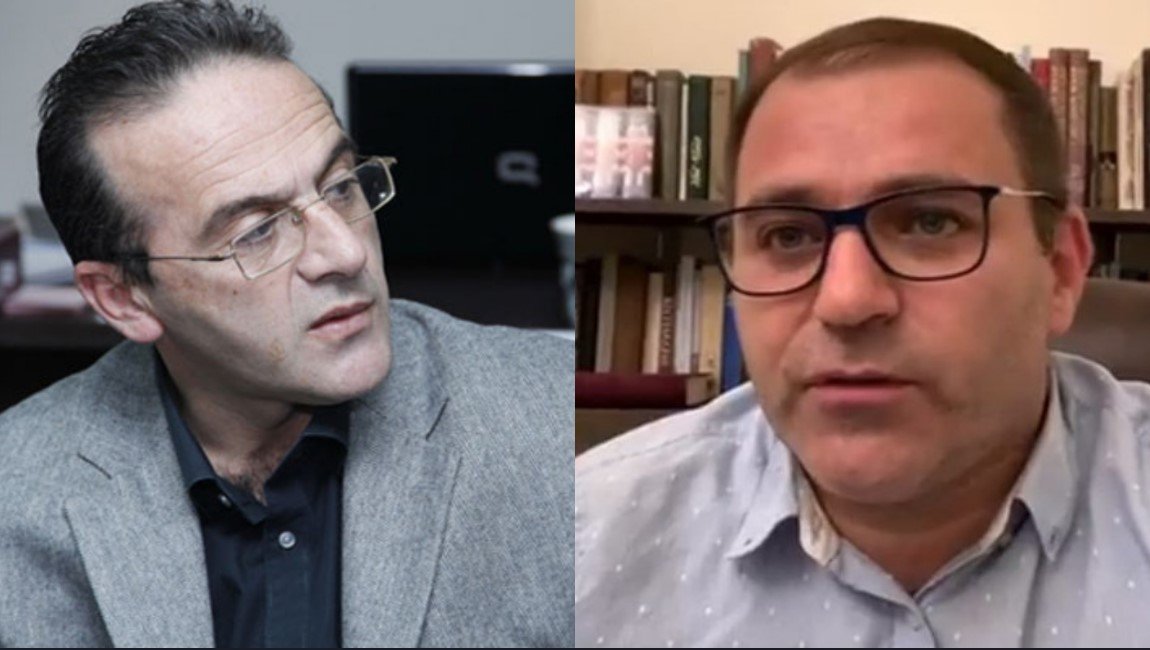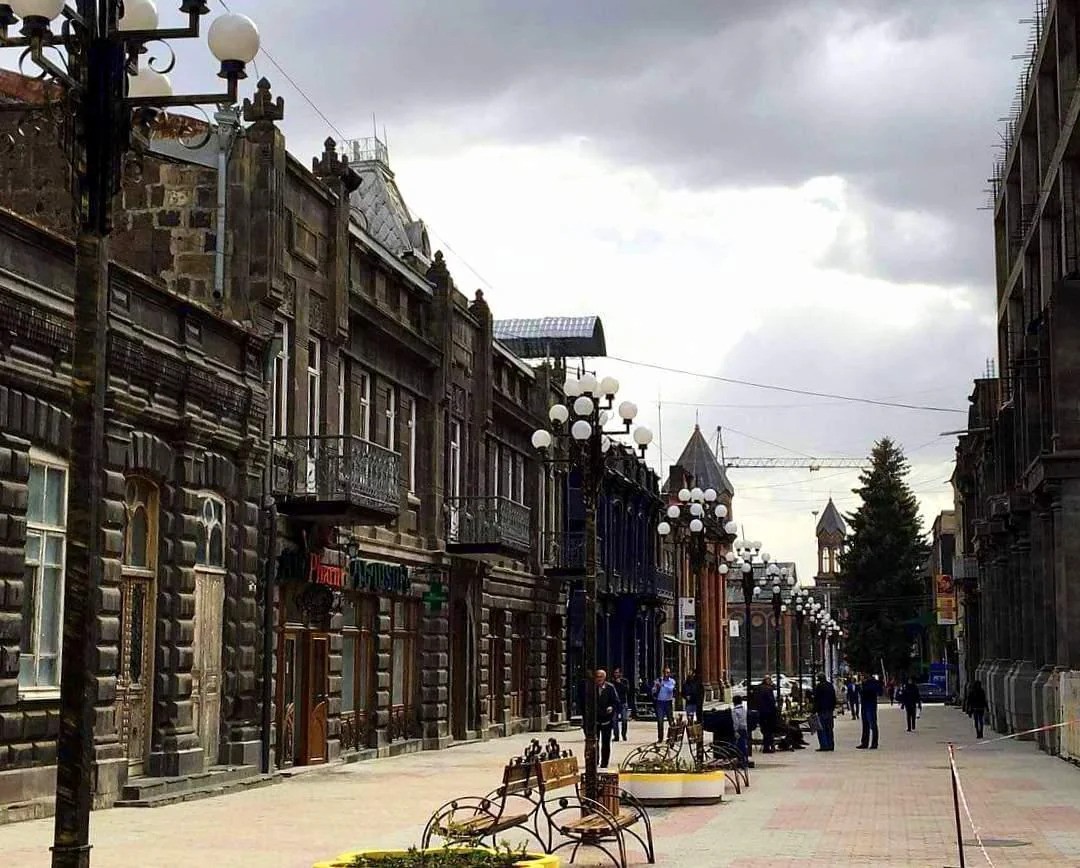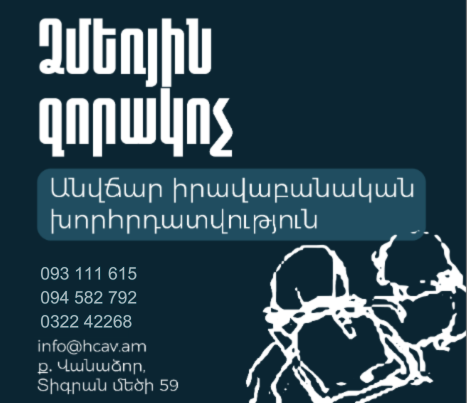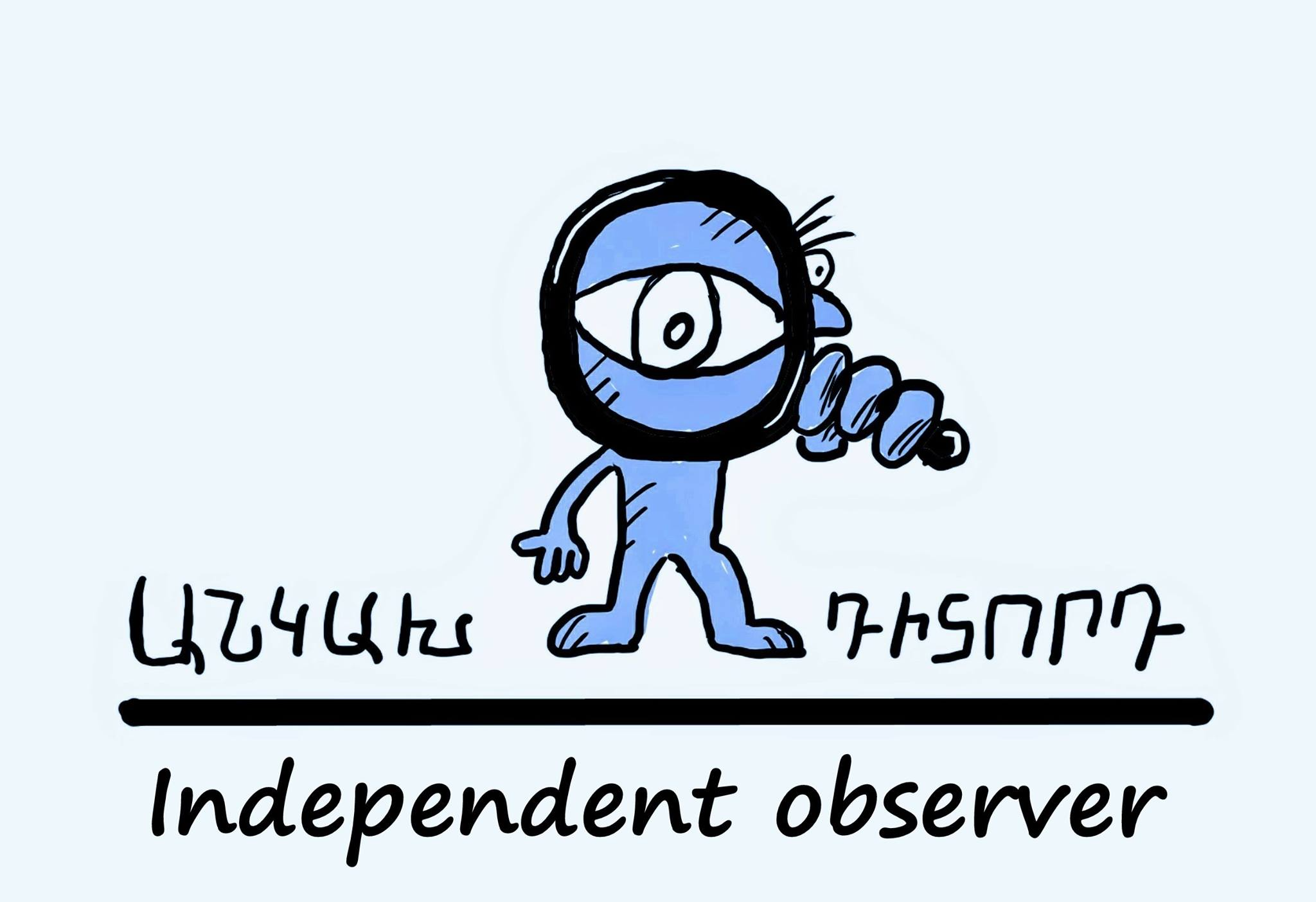




Report: COVID-19 and psychiatric institutions
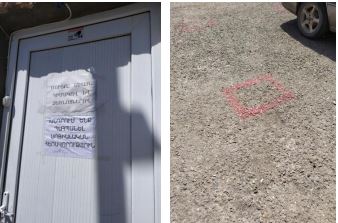
Activities | Reports|Information Papers|Brochures | Publications | Own | Closed and Semi-Closed Institutions | Civilian Oversight and Monitoring
Public Observers’ Group conducting monitoring in medical assistance and service organizations that provide treatment and care services in the frame of state support to persons with mental health problems in the Republic of Armenia presents the report “COVID-19 and psychiatric institutions”.
The Group was formed in 2017 as per the RA Health Minister’s order.
Members involved in the Group are Helsinki Citizens’ Assembly-Vanadzor; For Equal Rights; Women’s Rights House; “PINK”; Real World, Real People; Human Rights Research Center; Women’s Empowerment Center; Human Rights House Yerevan; Agenda of the Rights of Persons with Disabilities; Women’s Resource Center NGOs.
It should be mentioned that the Health Minister’s order also enshrines the procedure of the Group’s activity, according to which, the report was presented to the Ministry to get comments, however, the Ministry did not respond within the set timeframe. Therefore, the report is published without comments.
——————
The report sums up assessment of the impact of COVID-19 pandemic and emergency state conditions on persons receiving treatment and care and the staff in “Avan” Mental Health Center, National Centre for Mental Health Care and Sevan Mental Health Center. The report addresses the level of the institutions’ preparedness to respond to the pandemic, equipment with personal protective equipment, organization of food and ensuring communication with the outside world.
In general, the observation shows that some time after the outbreak of the pandemic, the institutions managed to take measures to prevent the pandemic and adjusted to the created situation. In particular, they managed to prevent the uncontrollable spread of the virus all over the institution despite Covid-19 cases among the staff, as well as persons receiving treatment and care in the institution. Nonetheless, monitoring results show that the institutions were not ready to function in such an emergency situation both in terms of procedural management and sufficient equipment. It was recorded that implementation of preventive measures was additional workload on the staff, which adversely affected their labor rights and made obvious the shortage of resources and vulnerability of persons in closed institutions to emergency situations.
The monitoring also showed that provision of proper living conditions - including food, hygiene conditions and means - to persons receiving treatment and care in the institutions becomes even more problematic in emergency situations, which is also related to restriction of communication with the outside world. This means that persons receiving treatment and care were deprived of the opportunity to receive food, clothes and hygiene means, while the institutions did not manage to provide the necessary means in a proper volume.
The following main problems were recorded:
-
insufficient conditions or lack of conditions for isolating new patients, potentially infected, and infected persons;
-
not fully adhering to virus spread prevention procedures;
-
inadequate level of equipment for preventing the virus;
-
lack of specific alternative procedures ensuring communication with the outside world or improper implementation of such procedures, as well as lack or insufficient quantity of the necessary equipment;
-
inadequate level of professional potential.
The full report is available HERE (in Armenian)


